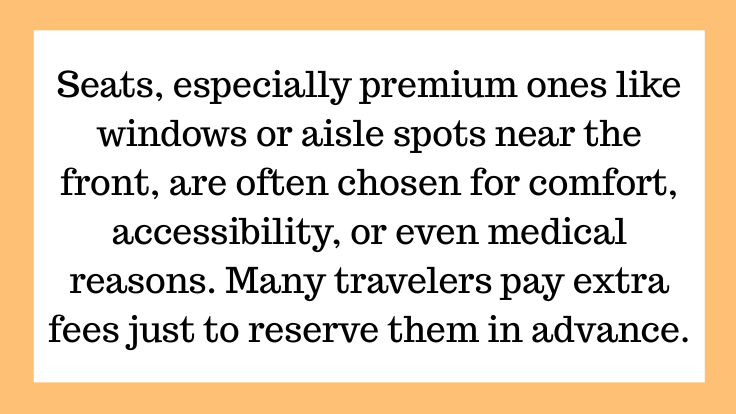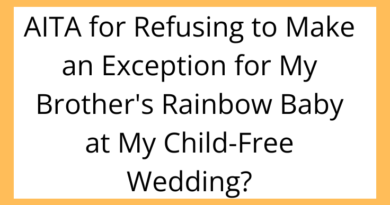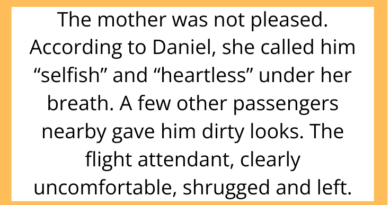Am I the Jerk for Refusing to Switch Plane Seats So a Family Could Sit Together?
Flying can be stressful enough—tight spaces, long queues, and unexpected delays. But one modern travel dilemma that keeps surfacing involves seat swapping on flights. Who really owns a seat: the person who booked it, or the family that wants to sit together?
This post from the AITAH Reddit community dives into a heated encounter mid-air, and it left thousands debating: Is it selfish to refuse switching seats if it means separating a family—or are you just protecting what you paid for?
The Situation: A Window Seat with a View—and a Conflict

The Original Poster (OP) was flying cross-country for work. As a frequent traveler, they always select and pay for a window seat to make long flights more bearable.
Upon boarding, a woman approached and asked if OP could switch with her husband so she could sit next to her two children. The catch? Her husband’s seat was in the middle, near the back of the plane.
OP politely declined, explaining they specifically booked the seat in advance. The woman was visibly frustrated and said, “You must not have kids.”
When OP still refused, the woman muttered loudly about “selfish people,” which prompted some judgmental stares from other passengers.
Now OP is wondering: Am I the jerk for not giving up my seat so a family could sit together?
Plane Etiquette vs. Personal Boundaries: Who Comes First?

This dilemma isn’t just about one airplane ride. It’s about entitlement, planning, and boundaries—three hot-button issues that get amplified at 30,000 feet.
The Case for Keeping Your Seat
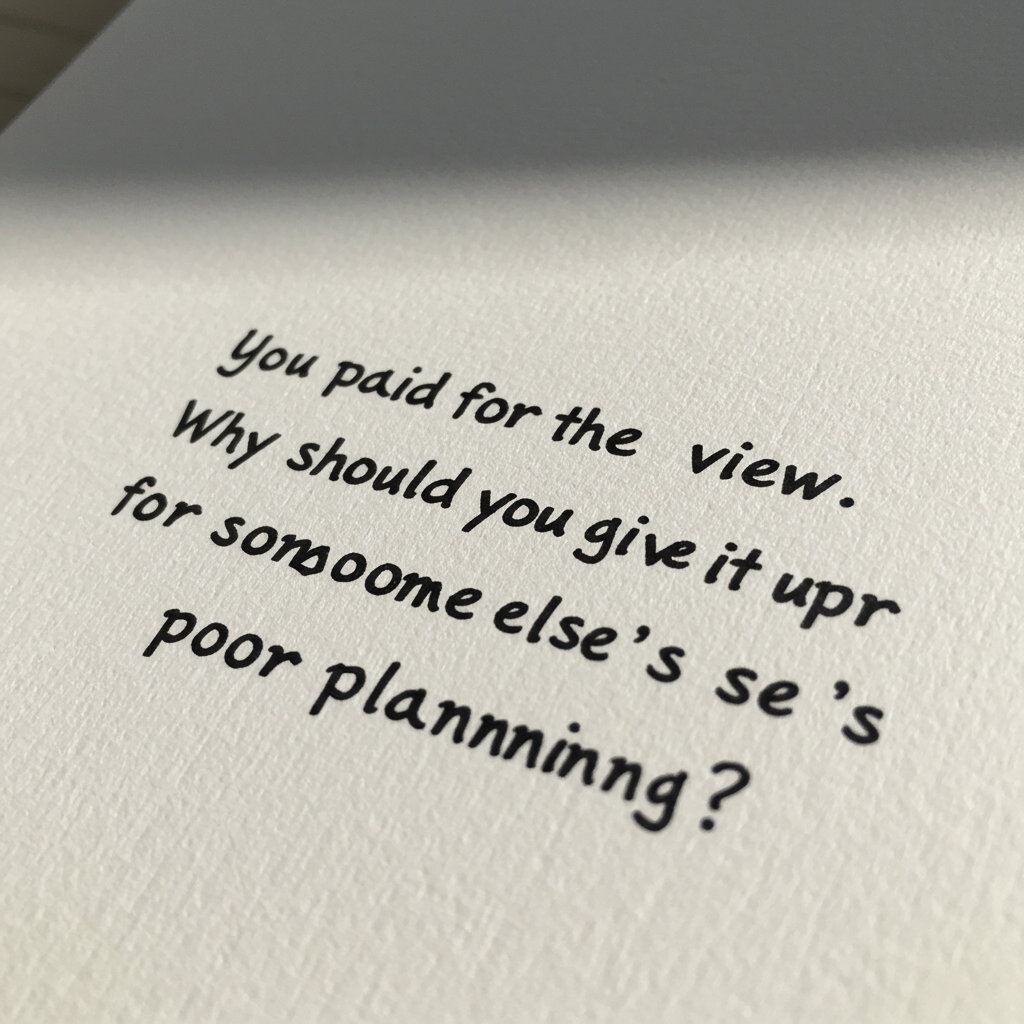
Seats, especially premium ones like windows or aisle spots near the front, are often chosen for comfort, accessibility, or even medical reasons. Many travelers pay extra fees just to reserve them in advance.
Saying “no” doesn’t make you rude. It makes you someone who planned ahead.
One Redditor put it bluntly:
“You didn’t pay extra to end up squashed in the back next to the bathrooms.”
They have a point. You’re not obligated to downgrade your experience because someone else didn’t plan accordingly.
The Case for Switching: Compassion and Flexibility
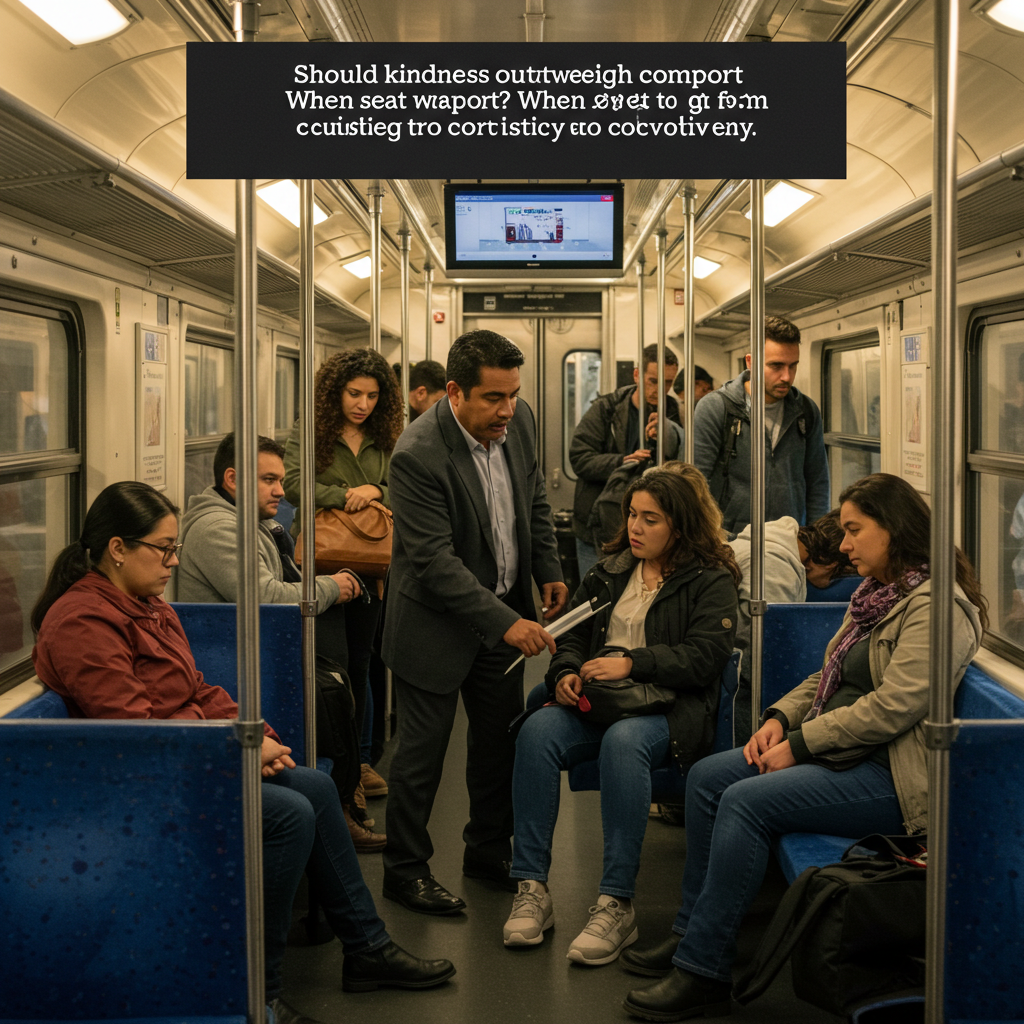
That said, travel can be chaotic. Families may book last-minute or have reservations shifted. For parents traveling with toddlers or children with special needs, sitting together is more than a convenience—it’s a necessity.
Some travelers argue that helping others—even if inconvenient—makes the world a better place.
If the replacement seat was of equal value (e.g., another window seat), would your answer change?
When Refusing a Favor Doesn’t Make You the Villain

OP’s refusal wasn’t aggressive or insulting. They said “no” politely and firmly. That distinction matters.
The woman’s reaction, however—loud comments, passive aggression, and attempts to shame OP—crossed a line.
Respect is a two-way street. You can ask for a favor, but you’re not entitled to it.
Reddit Weighs In: Who Was in the Wrong?
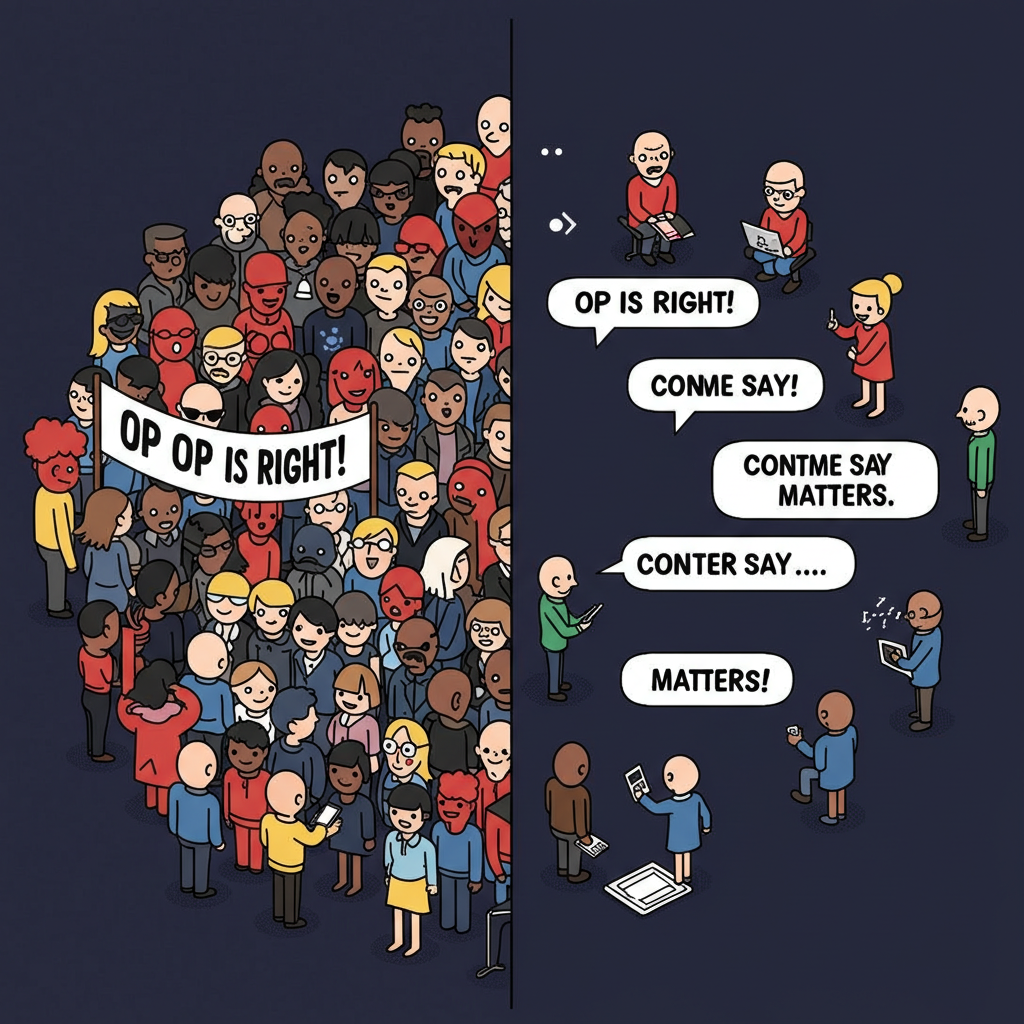
This thread exploded with opinions, and most users landed on one clear answer: OP is not the jerk.
A few key themes emerged in support of OP:
-
Planning matters: Booking a flight is a contractual agreement. If you want specific seats, you pay or plan early.
-
Fair exchange: If someone wants to swap, it should be for an equal or better seat. Trading a front-row window for a middle seat at the back isn’t fair.
-
Social pressure is manipulative: Guilt-tripping someone into compliance isn’t okay—whether in the air or on the ground.
That said, some users added nuance:
“You’re not the jerk, but if it were a mother alone with two toddlers, maybe I’d think twice.”
How to Handle Seat Swap Requests Gracefully
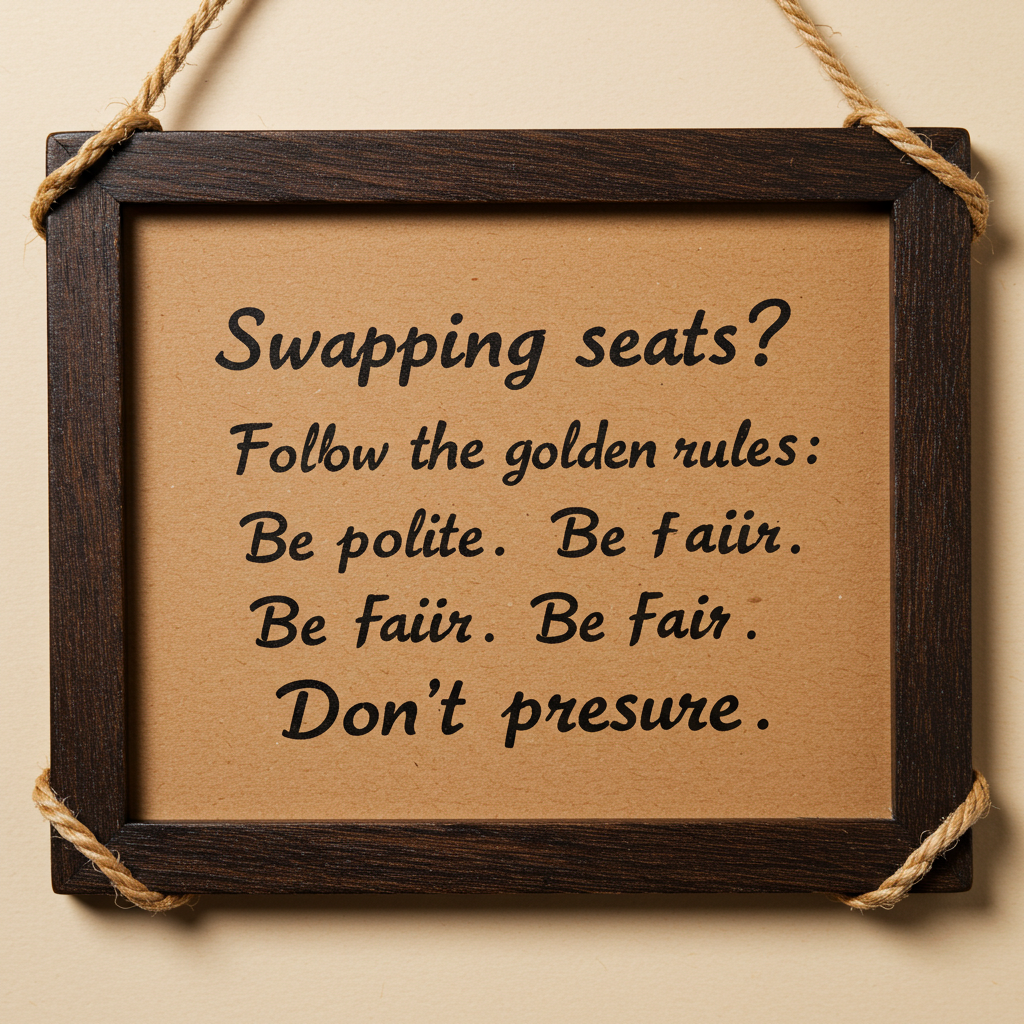
Whether you’re asking or answering, here are a few ways to navigate the next in-flight seat dilemma:
1. Be Polite, Not Pushy
If you’re asking someone to swap, always offer a comparable seat and ask respectfully. Never assume they’ll agree, and don’t react poorly if they decline.
2. Know Your Rights
Unless you’re flying an airline with open seating (like Southwest), your seat is yours. If you booked it fairly, you’re under no obligation to move.
3. Don’t Weaponize Empathy
It’s okay to feel disappointed, but passive-aggressive behavior or guilt-tripping only makes things worse. You’re not owed someone else’s comfort, even if you’re traveling with kids.
4. Consider the Bigger Picture
If it’s a short flight, switching might be no big deal. But for a 5-hour trip? That decision carries more weight. Evaluate the full situation before judging others.
Real-Life Examples: You’re Not Alone

-
A man on Reddit shared that he was once asked to switch his paid-for aisle seat with a middle one “because the couple wanted to cuddle.” He refused.
-
A woman was shamed by a gate agent for not moving so a family could sit together—but she had sciatica and specifically needed the aisle for leg movement.
-
Another user said they happily traded their window seat with a dad who offered his aisle seat further up—and they became friends over the course of the flight.
The difference in all these cases? Respect and fair value.
Conclusion: You’re Not the Jerk for Valuing What You Paid For

In the world of AITAH dilemmas, this one is clear-cut: You’re not the jerk for saying no.
It’s not about being cold or unkind. It’s about protecting your space—especially when others expect you to give it up with no benefit in return.
The next time you board a plane, remember this: being kind is great—but kindness is a choice, not a duty.
